Worry. It comes with the motherhood territory. At least, that’s what we’re told, and it’s true to some extent.
But sometimes, it’s more than just worry. Intense, chronic anxiety can turn your life into a living nightmare.
I was fortunate enough to come to terms with my anxiety disorder long before becoming a mother. My husband and I had just returned from a yearlong adventure living in Hawaii. Ironically, we felt more adrift back home than we had felt a half a world away, with no jobs, no place to live (apart from our parents’ basement) and no real plan for what was next.
The pieces eventually fell into place, but in the meantime, my anxiety spiraled out of control. I had frequent panic attacks for no apparent reason. I obsessively worried about horrific medical issues. My self-esteemed plummeted. I dwelt on fears and feelings of failure. My mind was trapped in a downward spiral of darkness.
Overwhelmed, I finally drummed up the courage to see a therapist. The insight I gained over the following months was truly life-changing.
I learned that what I was experiencing wasn’t a spiritual or moral deficit. It was a medical issue — a case of the brain misfiring. What I was feeling had a name: generalized anxiety disorder. It wasn’t something to feel ashamed or guilty about. And it wasn’t something I could overcome just by trying harder.
Looking back, the many struggles I’d experienced over the years — the obsessive-compulsive behaviors, the panic attacks, the destructive thought patterns — they all made sense. They were all stemming from the primitive part of my brain that was perpetually on high-alert.
With the help of ongoing therapy and medication, I was able to achieve normalcy and balance I never thought possible. Put simply, anxiety stopped ruling my life.
The tools I learned to keep my anxiety manageable proved invaluable during the tumultuous transition into motherhood a few years later. Here are the tips I found most helpful.
Get Help
We’re fortunate to live in an age when medical advances and ready access to highly trained therapists make mental illness more treatable than ever. Don’t hesitate to seek professional help at any time, for any reason.
I know: It takes courage to share your innermost struggles with a stranger. But it may very well be the best thing you ever do for yourself. If I hadn’t taken that first intimidating step years ago, I would have missed out on the richness and fullness of life without crippling anxiety.
I know: It also takes time and money. As mothers, we’re used to making sacrifices, but your mental health should never be among them. The time and resources you spend achieving mental and emotional well-being are well worth it.
Lean On Your Support Network
Share your burdens with trusted friends, family members, and other moms. Chances are, you’re not the only one struggling, especially during the hectic days of new parenthood. Knowing you’re not alone is a critical part of overcoming the stigma and self-doubt that often hamper us from getting the help we need.
Develop Healthy Habits
Diet and exercise tend to take a backseat during this busy time of life. However, even a few small, simple changes can have a big impact on your mental health. Try incorporating yoga or meditation. Or find something you can do with the kids — taking daily walks or chasing a ball around the yard, for example. The more you get off the couch, the better you’ll feel.
Don’t Give Into Mom Guilt
As mothers, it’s easy to feel like we’re never doing enough. This chronic feeling of falling short can take a tremendous toll on our mental health.
Be kind to yourself. As author and psychologist Jordan B. Peterson suggests in his book 12 Rules for Life, treat yourself as you would a beloved and broken family member — someone you’re responsible for encouraging and supporting.
So be gentle. Instead of focusing on your failings, recognize your strengths. After all, you are shaping and sustaining new life — an accomplishment that far outweighs any missteps you’ll make along the way.
Steer Clear Of Triggers
When I was an angsty college student, I used to dabble in sadness. Tragic stories held a strange fascination for me. Not in a morbid way, but as a means of emotional release. I found it cathartic to take in the occasional depressing movie.
Since I’ve had kids, my shell has become a lot thinner. The sensitivity brought on by pregnancy hormones never fully wore off. News stories involving harm to children can send me into a downward spiral of despair, sadness, and worry. If I’m not careful, horrible movies of the endless “what-ifs” start to play out in my head, unbidden, leaving me paralyzed with fear.
Let’s face it: your emotional resilience is probably a bit more fragile now than when you were a young, carefree 20-something with no responsibilities and no little humans relying on you. So know your triggers and limits, and don’t be afraid to give them a wide berth.
Which brings me to my last point…
Recognize Distorted Thought Patterns
Our inner thought life plays a major role in our mental health. We all fall into distorted thought patterns, and it takes a concerted effort to retrain your brain. Know how to recognize distortions like catastrophic thinking, polarized thinking, and over-personalization. Cognitive-behavioral therapy can help you “re-route” those thoughts into more balanced (and less anxiety-inducing) directions.
Learn to recognize when your thoughts and behaviors are leading you in an unhealthy direction. In my case, I know I’m heading into tricky territory when Googling medical issues. What starts as a search for “migraine vs. tension headache” ends two hours later with a trembling announcement to my husband that I almost certainly have a rare and terminal brain tumor.
In fact, I considered going in a different direction with this post: “15 Things to Do Instead of Wasting Your Entire Night With Dr. Google.” Point being, your time is valuable, so spend it doing something healthy, enjoyable and uplifting rather than feeding the voracious beast of anxiety.
Trust me; you’ll never satisfy its appetite.



